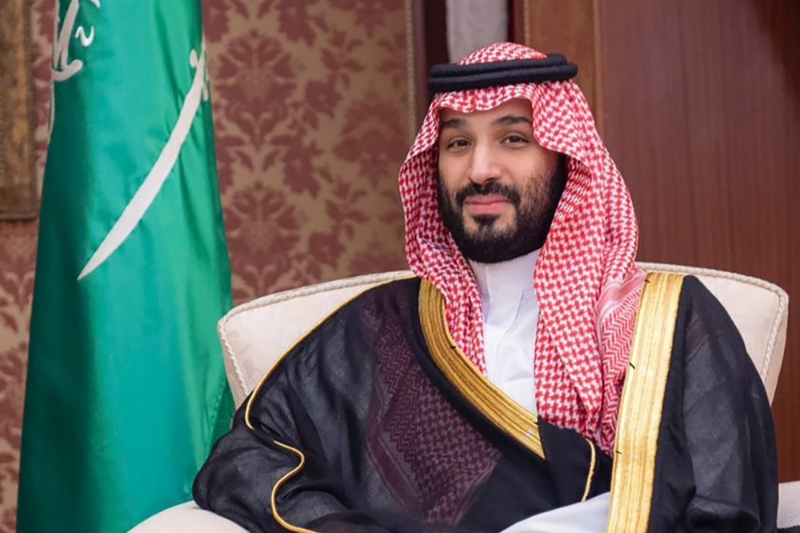It is estimated that at the current rates of extraction, Saudi oil reserves will be completely depleted in 60 years and hence Saudia Arabia’s energy transition is very critical to its economy.
Oil accounts for 80% of Saudi Arabia’s exports and 40% of the national GDP. As the world faces the increasingly severe effects of climate change, it is the utmost duty of countries worldwide to act against the dangers posed by this phenomenon. The energy sector, responsible for over three-quarters of total emissions (76%), is the largest contributor to carbon emissions worldwide.
Given that the Kingdom of Saudi Arabia is the world’s largest oil exporter, it will undoubtedly need to reduce its production to meet international standards regarding carbon emissions. Additionally, oil resources will inevitably be depleted over time, necessitating the country’s adaptation and the development of sustainable solutions.

Currently, oil production accounts for 40% of Saudi Arabia’s GDP, down from 60% in 1991. This significant progress demonstrates the strong efforts made by Mohamed Bin Salman, the ruler of Saudi Arabia, to diversify the country’s economy. In 2016, Saudi Arabia launched Saudi Vision 2030, a project aimed at reducing dependence on oil, diversifying the economy, and developing public service sectors such as health, education, infrastructure, recreation, and tourism.
Religious tourism, for instance, contributes to 20% of the national economy. Millions of people travel to Mecca every year to perform the Muslim pilgrimage, and this form of tourism has been a significant source of income for the country. Saudi Arabia has invested in infrastructure and expanded accommodation options for tourists, recognizing the importance of this sector.
Is the Vision 2030 plan too ambitious? Experts suggest that projects of this magnitude often take longer than anticipated. It is essential to remain pragmatic, as is the case with any project of such scale implemented anywhere in the world. While Saudi Arabia may not require external funding due to its significant financial resources, aligning with neighbouring countries’ policies or collaborating with broader actors could be beneficial.
The Green Transition: A Challenging Feat
The acceleration of the green transition in Arab countries has been limited. Many countries across the Maghreb and Middle East still heavily rely on fossil fuels, which contribute to significant carbon emissions. For Saudi Arabia, a country propelled onto the international stage due to its oil resources, the green transition poses a significant challenge. The country possesses a substantial share of the world’s oil resources, which has fueled its economic growth since the 1950s and improved the quality of life for its population. Without oil, Saudi Arabia would not be where it stands today.
Hundreds of thousands of jobs are directly or indirectly linked to the oil industry. For instance, the state-owned oil company Aramco, formed through a merger with American companies Texaco and Chevron, employs 66,000 individuals. Additionally, many of the country’s assets, including the national fund, are heavily reliant on oil resources. While the national fund is currently thriving, the economy will face a significant blow once the country exhausts its most precious resource.
Fortunately, Saudi Arabia has been investing in alternative energy sources, such as solar panels and wind turbines. One notable project in pursuit of a green future is the construction of Neom, a new city that will rely autonomously on renewable energy sources.
The Significance of Oil for Saudi Arabia on the International Stage
With its abundant resources, Saudi Arabia holds significant influence in international affairs. The Kingdom is a major regional power alongside Iran, Egypt, Israel, and others, allowing it to leverage its advantages during negotiations. For example, this has led to a normalization of relations with the Islamic Republic of Iran.
Furthermore, Mohammed bin Salman maintains strong relations with current superpowers, namely the United States of America and China. Although the 2018 incident involving the murder of Jamal Khashoggi temporarily strained relations, particularly with the West, they have largely returned to normal.
Interestingly, events like the war in Yemen do not seem to have long-term effects on Western countries, as they often position themselves as champions of peace and freedom. Selling weapons and military equipment can be seen as indirectly supporting proxy wars to serve their interests. However, geopolitics is a complex arena with numerous factors at play.
Noam Lounes is a student of International Business with a focus on Science Politics at ECSE, the leading school for international careers. He has been deeply involved in geopolitical concerns, by doing Model United Nations since my high school years and being part of CINUP. For CINUP, Lounes has written articles every week about international relations since September 2022. He is also profoundly concerned about environmental issues such as climate change and the usage of natural resources. He aims to bring motivation and passion to the field of geopolitics to work towards a better understanding of the world.
Disclaimer: The views and opinions expressed by the author do not necessarily reflect the views of the Government of India and Defence Research and Studies
Title image courtesy: Business Recorder
References :
- Alhajji, A. F. (2021). The role of oil in the Saudi Arabian economy: Policies, strategies, and future prospects. Journal of King Abdulaziz University: Islamic Economics, 34(1), 39-56.
- World Bank. (2023). Saudi Arabia Economic Update, April 2023. Retrieved from World Bank website.
- Saudi Vision 2030. (n.d.). Official website. Retrieved from Saudi Vision 2030 website.
- Monecke, J., & Alharbi, A. (2022). Renewable energy transition in Saudi Arabia: Opportunities, challenges, and policy implications. Energy Policy, 164, 112544.
- Alqahtani, S. A., & Hong, S. (2022). Saudi Arabia’s Vision 2030 and the transition towards a knowledge-based economy. Technological Forecasting and Social Change, 175, 121224.
- Saudi Arabia Green Building Forum. (n.d.). Official website. Retrieved from Saudi Arabia Green Building Forum website.
- Alsaleh, Y. A., & Kothari, R. (2021). Environmental, social, and governance (ESG) performance of Saudi Vision 2030. Sustainability, 13(9), 5194.
- Abdalla, C. W., & Al-Mulali, U. (2021). Investigating the relationship between renewable energy consumption, CO2 emissions, and economic growth in Saudi Arabia: Evidence from a wavelet coherence approach. Renewable and Sustainable Energy Reviews, 139, 110760.
- United Nations Development Programme. (2022). Saudi Arabia: National Human Development Report 2022. Retrieved from UNDP website.
- Alawadhi, A. (2021). Renewable energy opportunities and challenges in Saudi Arabia. In Renewable Energy and Sustainable Development in the Gulf Region (pp. 27-48). Springer.





